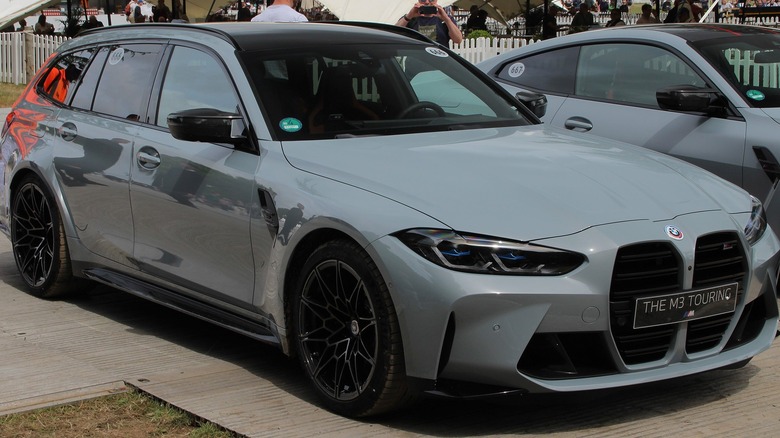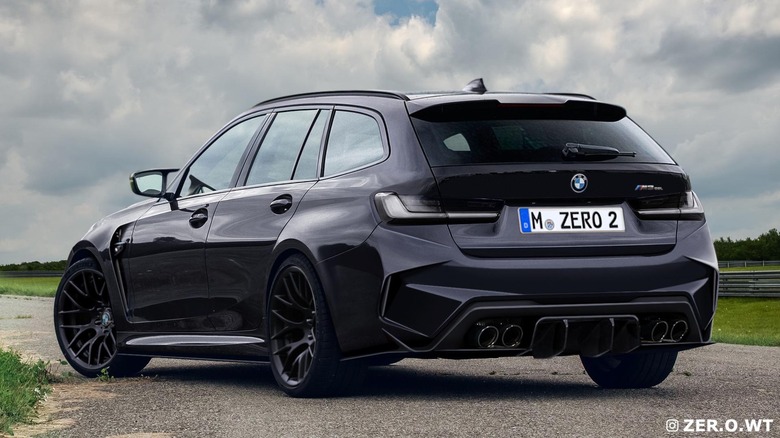The Reason Why BMW Won't Sell The M3 Touring In The US
Imagine if the Griswold family had made the journey from Chicago to California's Walley World in a BWM M3 Touring instead of the Ford LTD Country Squire station wagon.
Oh sure, the M3 wasn't made back then, but you're missing the point — which is that dreaming is fun. And that's all car enthusiasts hoping for a much cooler "station wagon" will ever be able to do here in the United States. At least when it comes to BMW's updated version of the Family Truckster. If you're not partial to Bayerische Motoren Werke (Bavarian Motor Works in German), you could grab yourself an Audi RS6 Avant or a Mercedes-AMG E63 S Wagon, both of which are available here.
When many hear the word "station wagon," the first image that pops into our head is of that ugly green, wood-paneled behemoth owned by the Griswolds. It takes many back to when that actually was the family car that drove us to theme parks, national forests, or over rivers and through woods. The nostalgia for that vehicle is part and parcel of why that film was so successful.
According to JATO Dynamics, 1976 was a banner year for the station wagon. With 62 different models available, American drivers bought more than 972,000 of them, which equated to 10% of all vehicles sold in the United States that year. By 2015, only eight models were available, and station wagon sales had dropped to a mere 1.1% of all cars sold (via Investopedia).
Homologation isn't just a funny word, it's an expensive process
Several things contributed to the mighty station wagon's downfall, from the rising cost of gas to the proliferation of minivans (first introduced by Chrysler in 1983), sport utility vehicles (SUVs), and crossovers. However, station wagons are making a comeback because they handle like a sedan but have the room of an SUV. According to Carscoops, Americans are buying station wagons again, but only if they look like SUVs. So if that's true, why wouldn't BMW bring their M3 Touring to America's windy roads?
Timing. And cost. But mostly timing.
Because wagons haven't been popular in the United States for some time, BMW hasn't sold any of its sports wagons in the U.S. for years. Before even moving forward with the M3 Touring, BMW had nixed selling the regular 3 Series wagon in the U.S. Homologating a car here is time-consuming and very expensive. It involves numerous crash testing, making changes and improvements based on those findings, and ensuring that it meets numerous other regulations put into place by the Department of Transportation (DOT) and the Environmental Protection Agency (EPA).
By the time the M3 Touring was put on the production map, it was already too late for BMW to go back and retrofit it for use on American roads. Plus, it's a limited production vehicle where the allocation has already sold out.

